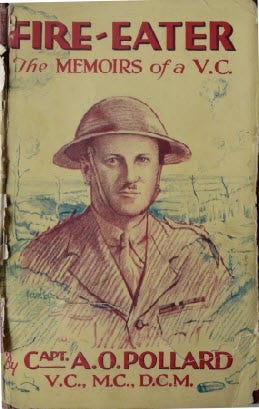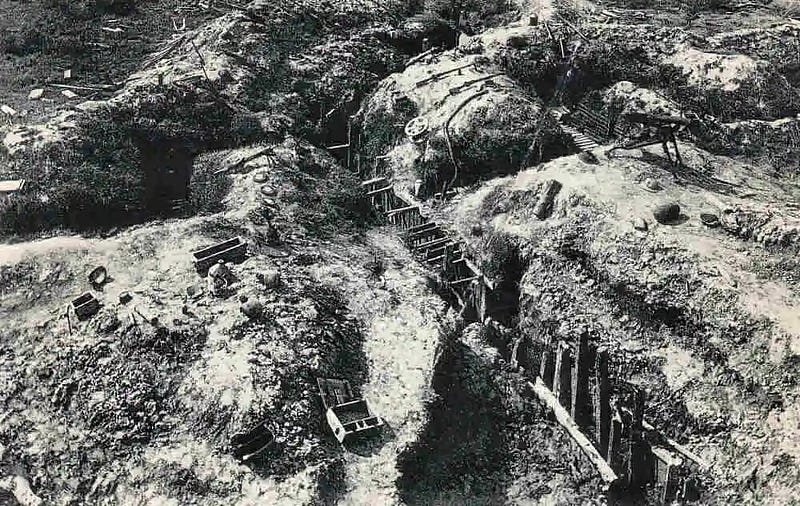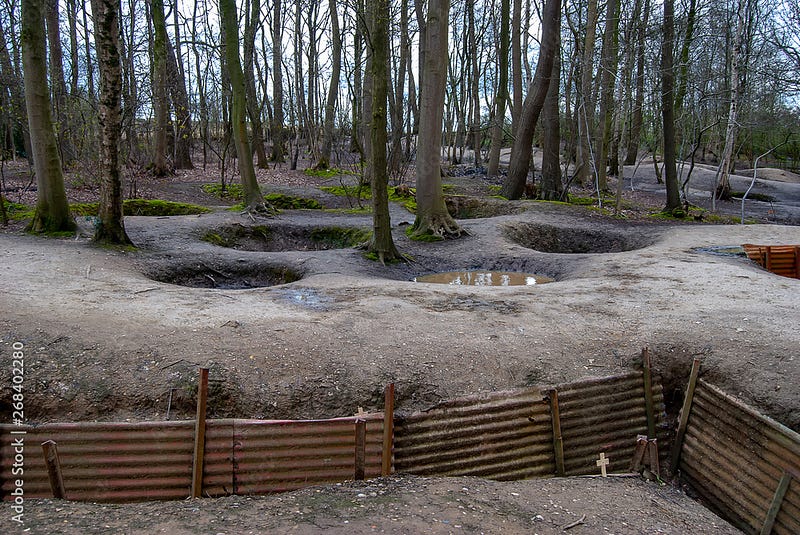Who was Captain Pollard: “The Fire-Eater” of World War I
And how this captain led courageously and confidently his British troops at Ypres
Date: September 30, 1915 Location: Sanctuary Wood, near Ypres, Belgium Mission: Regain lost ground and divert German forces from the Battle of Loos
The heroic deeds accomplished by Alfred Pollard at Ypres during World War I earned him military honors, but they were only a small part of the remarkable military record of this outstanding Englishman.

The Will to Fight
More than anyone else, Alfred Pollard was born to serve his country in times of war. As he later wrote in his memoirs, when the war broke out, he was 21 years old, employed in an insurance company, and “totally irresponsible.” However, when he held his first rifle, Soldier Pollard felt an incredible excitement: “I wanted to kill — not out of hatred for the enemy, but because of a powerful primitive instinct that drove me to fight.”

Calmness in Action
Unlike many young men who glorified the idea of war but were horrified by its reality, Pollard was thrilled to engage in combat. In April 1915, during the second Battle of Ypres, he witnessed the horrific death of thousands of fighters when the German army first used a highly toxic chemical warfare gas, chlorine. His resolve was strengthened.

His enthusiasm and combat skills allowed him to quickly rise through the military ranks. Promoted to the rank of corporal, he was a sergeant when he received the Distinguished Conduct Medal (DCM) for his courage in September 1915: as the British prepared for their largest offensive of the year, the Battle of Loos, Pollard was part of the troops sent to Sanctuary Wood, east of Ypres, with a dual mission: to try to regain some of the lost ground a few months earlier and draw the German forces out of Loos.

Indomitable Bravery
Pollard led into battle a group of eight grenadiers — two riflemen, with bayonets fixed at the end of their rifles, led the way for a mortar launcher and an ammunition carrier, followed by four men in a similar formation, then by the group leader and a supporting soldier carrying ammunition. They fought inch by inch through the trenches and tangled barbed wire. As they advanced in no man’s land, Pollard remembers that a “German shell exploded in front of me, throwing me violently backward… I sat up and shook myself like a dog. My body was studded with small thorns where the shell fragments had pierced my flesh.”

According to the citation accompanying the award of the DCM,
Despite his injuries, Captain Pollard continued to launch shells while encouraging his men. Through his brave and exemplary conduct, he restored confidence to his grenadiers when they were shaken by the numerical superiority of their enemies and subjected to a veritable hail of fire. He continued the fight until he fell a second time, after being severely wounded.
Pollard survived and was able to fight again.
